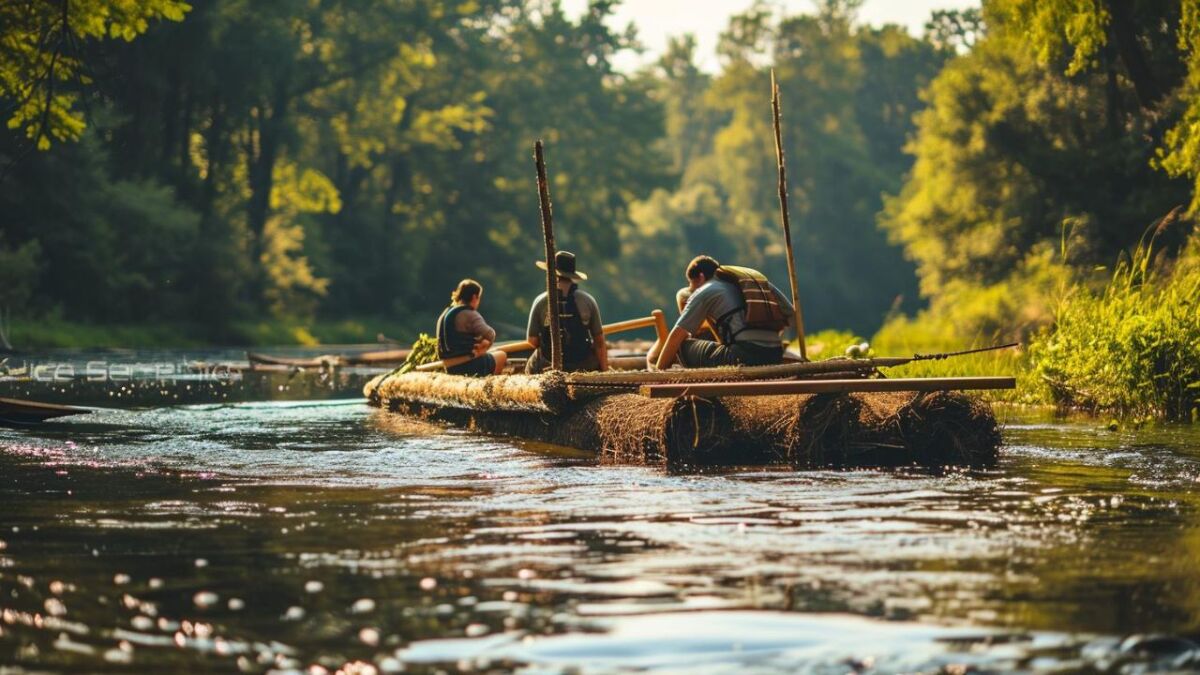
31 Survival Challenge Ideas: Boost Your Survival Skills in a Playful Way
👉 The key facts from this guide
- Start by learning basic survival skills such as making fire without tools, navigating without a compass, and finding edible plants
- Challenge yourself gradually with more demanding survival tasks, such as spending a night alone in the forest or going on multi-day trips with minimal equipment
- Take part in a survival competition or workshop to put your learned skills into practice and learn from others
- Build a weatherproof shelter using only natural materials such as branches, leaves, and moss, and spend the night in it
- Become part of a survival community for exchanging experiences and learning advanced survival techniques from others
- Get information on safety precautions beforehand to prevent injuries and dangers in the wilderness
Do you sometimes feel unsafe in the wilderness?
The fact is: Nature is often unpredictable and consistently presents us with real challenges.
But here comes the good news!
I have 31 exciting survival challenge ideas for you.
These challenges are not only educational, but also a lot of fun, especially in a group.
Are you ready to compete with friends? Let's get started!
Meaning of Survival and Bushcraft Skills
When striving to improve your survivability, adventurers and nature enthusiasts are increasingly turning to survival training.
This consists of various scenarios and survival challenges that aim to strengthen not only physical strength but also mental resilience.
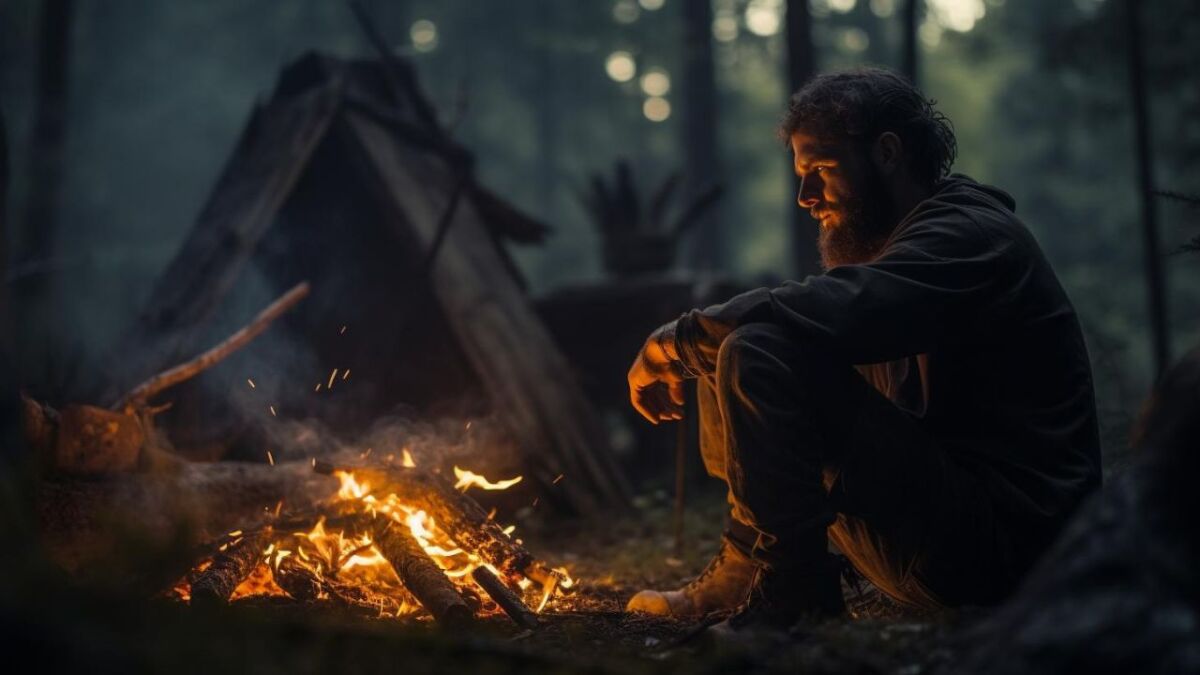
I have discovered that the key to a successful wilderness adventure lies in being prepared for every possible scenario.
Here, the constant challenge of our abilities and the mastery of various tasks play an essential role.
Below you will find an overview of various challenge levels that are specifically designed to cater to everyone - whether you are a beginner or an expert.
Challenge Level from Beginner to Expert
Are you just starting out with survival or do you already have experience?
For you, there is just the right level of challenges. This way, you can test your skills and improve.
| Level | Skills | Examples |
|---|---|---|
| Beginner | Basic techniques | Starting a fire without tools, identifying edible plants |
| Advanced | Advanced techniques | Building a shelter, navigating without technical aids |
| Expert | Specialized knowledge | Surviving in different climates, long-distance orienteering |
Each of these levels represents its own survival challenge and encourages you to improve your survival skills step by step.
The joy of learning and the conscious use of natural resources in different scenarios are emphasized here. So, embark on this exciting adventure.
Beginner Challenges and Tasks
As a beginner in Survival Challenges, there are basic skills that one should master outdoors.
An outdoor adventure often begins with simple but crucial survival skills.
Below I will show you the steps you should master to not only survive, but also have fun on your first survival trip.
Of course, survival tips, orienting oneself with trees, and knowledge of food must not be missing. Safety instructions and basic first aid knowledge complete the survival challenges for newcomers.
1. Making fire without a lighter or matches
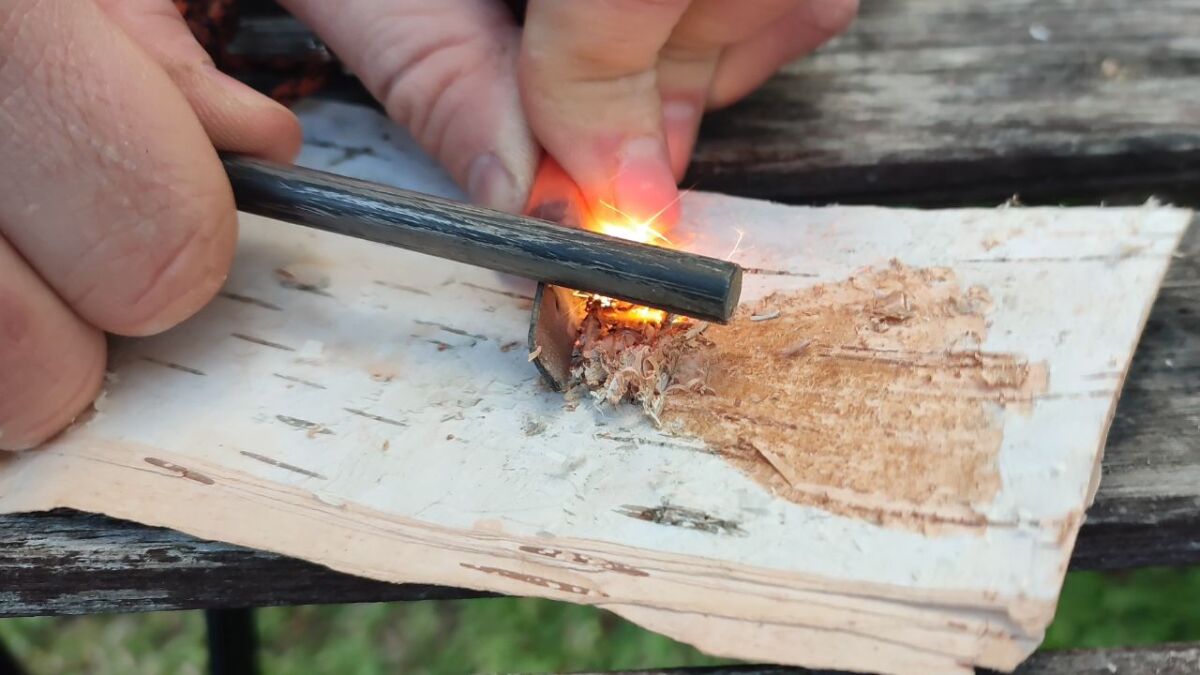
It starts with the ability to ignite a fire without modern tools. The use of a Firesteel, tinder, and the right technique is an art in itself.
I recommend these exercises to you:
- Fire Staff: Ignite a fire in groups using only a fire striker and natural materials. Objective: Promote teamwork and understanding of techniques.
- Fire Challenge: Each team member adds a component (tinder, small twigs, etc.) to build a fire. Objective: Foster teamwork and understanding of fire building steps.
Do you want to read more? Then check out Making fire without a lighter or matches so you're prepared when it matters.
2. Find and filter water
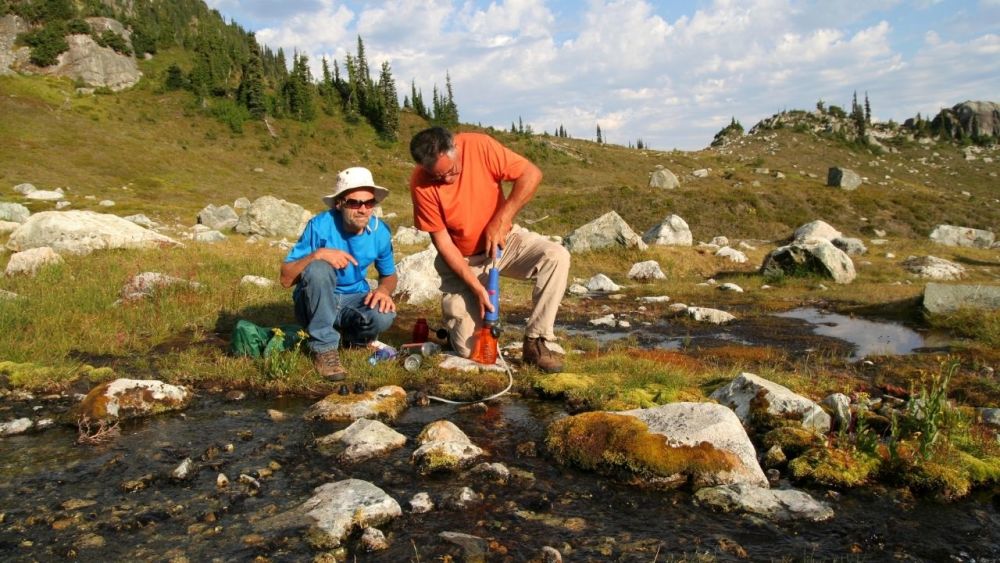
Pure water is vital for survival. It is about finding water in nature and purifying it through natural filtration methods.
I recommend these exercises to you:
- Water Search: Groups search for water sources and discuss their safety. Goal: Recognize good water sources.
- Filter Building Competition: Teams build water filters using natural materials. Goal: Understanding water purification.
Learn more about safe water in the wilderness at Finding and Filtering Water.
3. Finding and preparing food in the wilderness
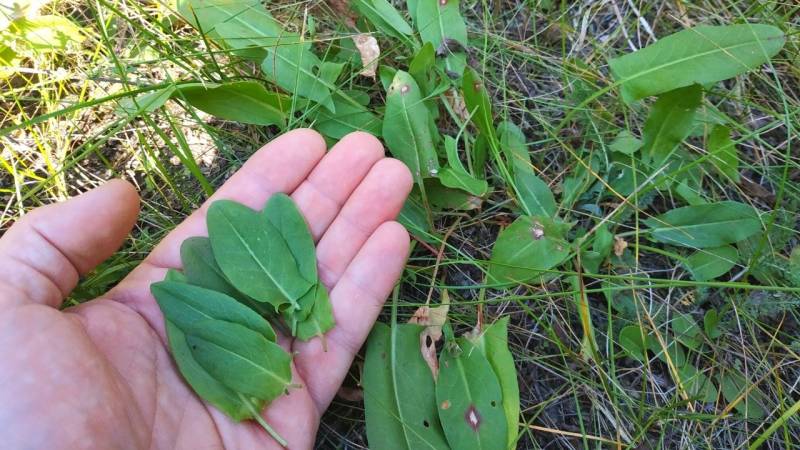
From recognizing edible plants and insects to catching smaller animals: foraging is a crucial survival skill.
I recommend these exercises to you:
- Edible Plant Rally: Teams collect edible plants and insects. Goal: Expand knowledge about edible natural resources.
- Survival Cooking Competition: Teams cook with found food. Goal: Creative use of natural resources.
For more information, check out Finding emergency food in the wild.
4. Building natural protection against wind and weather
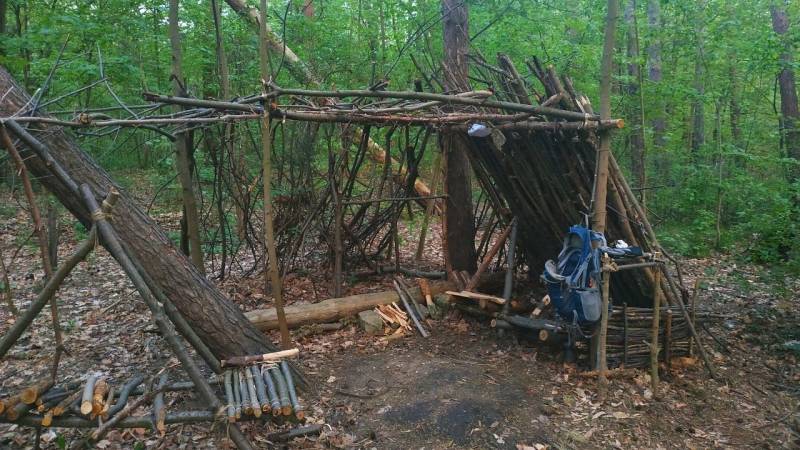
A shelter made of branches and leaves provides protection from the elements and a temporary refuge for the night.
I recommend these exercises to you:
- Shelter Building Competition: Teams build a shelter using natural materials. Goal: Understanding protection from the elements.
- Shelter Design Challenge: Design the most creative and stable shelter. Goal: Innovation and application of techniques.
Learn more about a shelter in my guide: Building a Bushcraft Shelter.
5. Basics of First Aid in the Wilderness
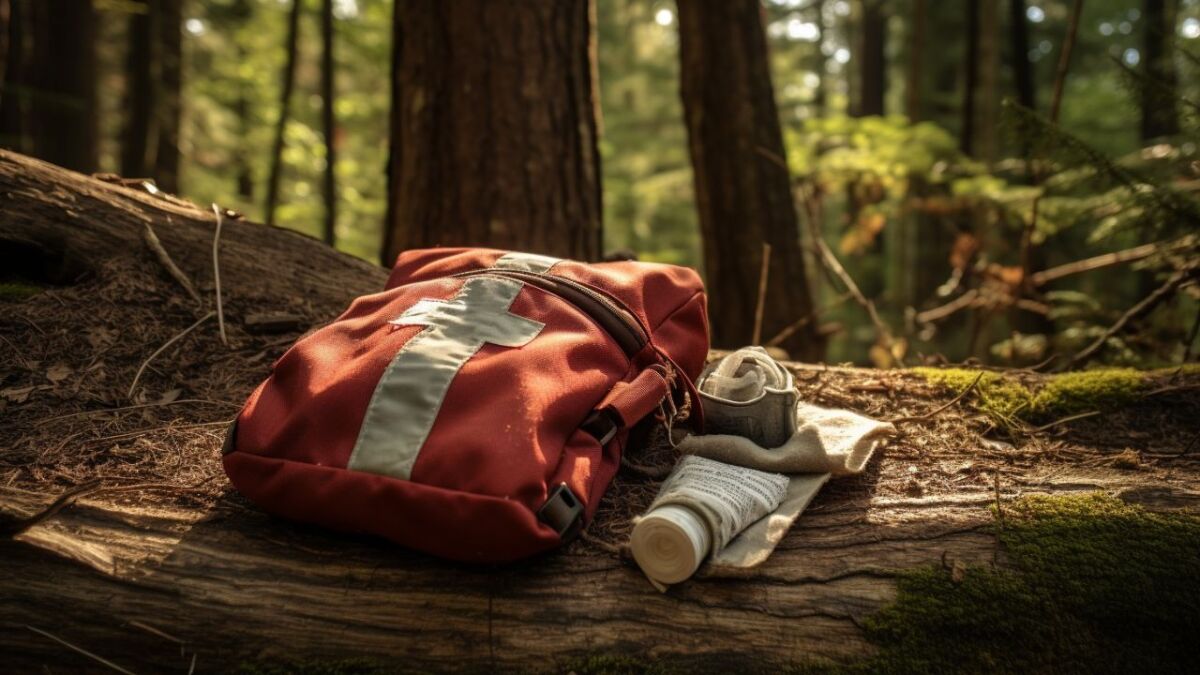
When it comes to injuries, knowing basic first aid in the field is a must. Knowing the basics can be lifesaving.
I recommend these exercises to you:
- First Aid Rally: Solve first aid tasks at various stations, such as applying bandages, applying pressure dressings, removing ticks. Goal: Basic knowledge in first aid.
- Emergency Simulation: Reenact an emergency and provide first aid, such as treating a broken arm. Goal: Application of first aid in realistic scenarios.
Deepen your knowledge in first aid with the guide: Bushcraft First Aid.
6. Orientation with compass or GPS

With the help of technical aids, orientation in the terrain still requires a good memory and understanding of natural signs.
I recommend these exercises to you:
- Nature Navigator: Orienting with a compass, map, and natural signs, such as determining the cardinal directions. Goal: Understanding of natural navigation methods.
- Orientation Race: Reaching a distant point on a map as quickly as possible without the use of technical aids. Goal: Practical application of orientation skills.
For more information, please refer to my comprehensive guide: Navigation and Orientation without a Compass.
7. Simple Knots and Rope Techniques
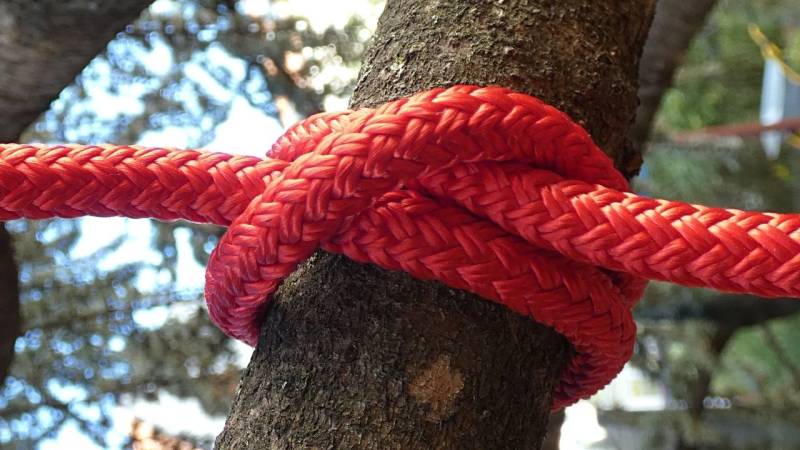
Knots can be crucial when building shelters or climbing. They are simple yet effective tools.
I recommend these exercises to you:
- Knot Course: Learn and apply various basic knots. Goal: Knowledge of important knots.
- Rope Technique Competition: Practical application of rope techniques in a challenge. Goal: Understanding the use of ropes and knots.
Get informed about knots in my guide: 6 important knots when you're outdoors.
8. Creating signals for emergency services
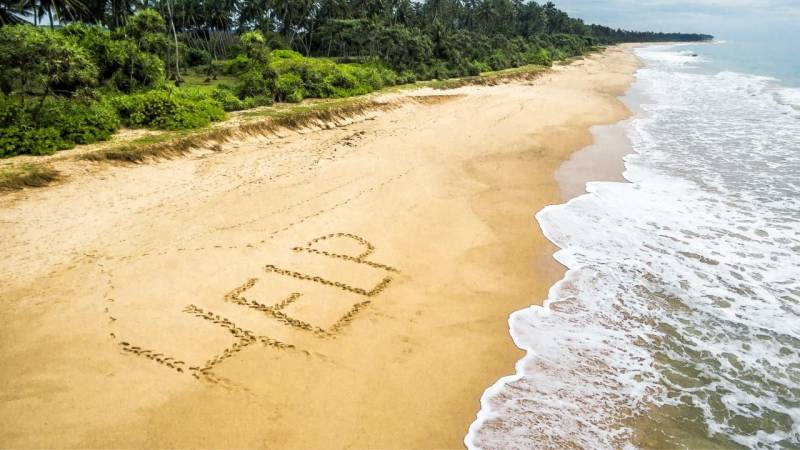
In case of emergency, S.O.S. signals must be made visible to gain attention and facilitate rescue.
I recommend these exercises to you:
- Signal Building: Creating signals from natural materials, like a smoke signal, that smokes to the maximum. Goal: Setting effective SOS signals.
- Rescue Rally: Distributing rescue signs along a route and another group has to track them. Goal: Fast and efficient tracking in case of emergency.
Learn more about signals at: Primitive signals that will definitely get your attention.
9. Recognizing Edible Plants
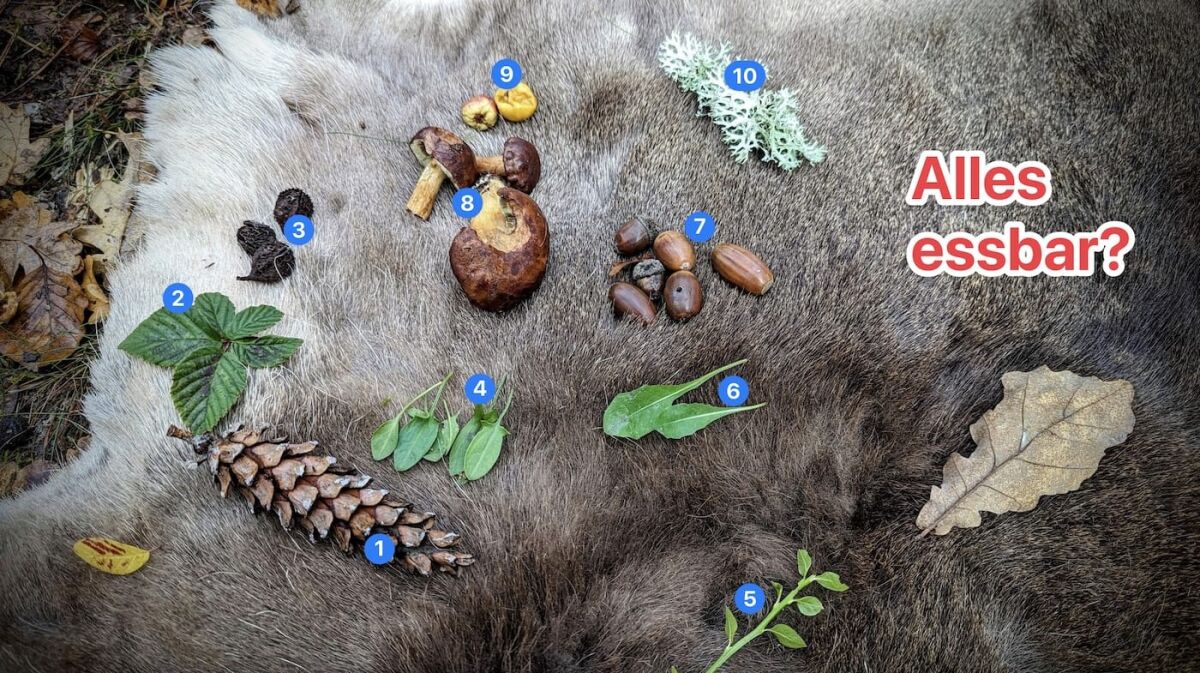
Which berries and herbs can be eaten and which are poisonous? Knowing this is essential for foraging.
I recommend these exercises to you:
- Plant Quiz: Recognize and classify different plants. Goal: Knowledge about edible and poisonous plants.
- Edible Plant Hike: Collect and identify plants. Goal: Practical learning in the field.
Everything on the subject can be found in the guide: Emergency Food: Edible Plants, Fruits, Nuts, and Roots in the Forest.
10. Weather forecast with natural signs
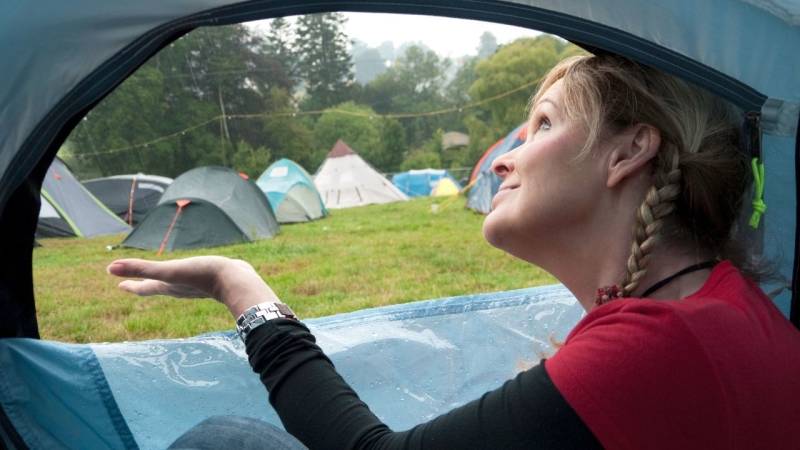
Changes in weather can be critical. The ability to predict them protects against unexpected situations.
I recommend these exercises to you:
- Weather Observation Challenge: Predict weather based on signs. Goal: Application of weather knowledge.
- Cloud Drawing Afternoon: Draw clouds and find as many ones as possible. Goal: Familiarization with cloud types.
Deepen your knowledge of weather forecasting with the encyclopedia entry on weather forecasting and read my ultimate guide: "Weather forecast with animals, plants, or clouds - assessing the weather through observation of nature".
All these challenges are important building blocks for a safe and exciting wilderness experience.
Face these tasks to secure your survival outdoors and prepare yourself to tackle even more challenging Survival Challenges.
Advanced Challenges
As an experienced adventurer, I am constantly seeking adventurous survival challenges that not only test me physically, but also mentally.
Participating in a Survival Competition or an immersive Survival Workshop provides the perfect opportunity for this.
It's not just about the skills in the outdoor area, but also about the sense of belonging within the group.
One aspect that is often underestimated in such challenges is the importance of plants for survival in the wilderness, whether as a source of food or as material for shelter.
11. Spend a night alone in the forest
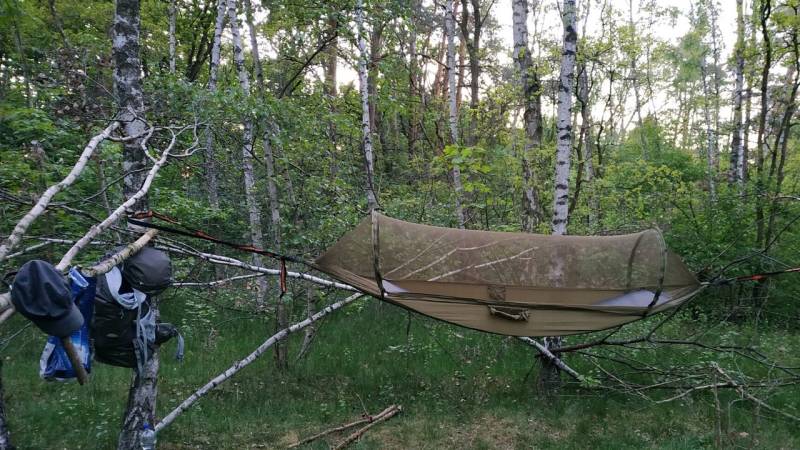
Spending the night alone in the forest, under the starry sky and surrounded by the nocturnal sounds of the forest, is an invaluable experience.
I recommend these exercises to you:
- Group Night Hike: Each group member takes turns leading the group through the forest to gain familiarity with the darkness. The goal is to strengthen self-confidence and night orientation skills.
- Solo Overnight Stay: Each person builds their own small shelter and spends the night separately but within calling distance. The goal is to promote independence and trust in one's own abilities.
Do you want to learn more about sleeping in the forest? Then check it out here.
12. Multi-day survival hike or trekking tour
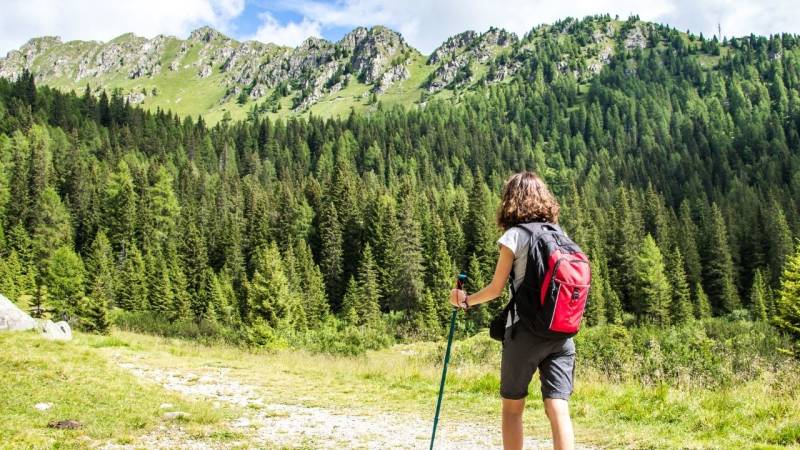
The challenge of tackling multi-day hikes with only the essentials in your backpack sharpens your sense of what is essential.
I recommend these exercises to you:
- Group Planning Challenge: Plan a route together and share responsibilities. The goal is to improve teamwork and planning skills.
- Survival Scenario Game: During the hike, each group member presents a survival scenario that the others must solve. The goal is to improve problem-solving skills.
Here you can find everything about multi-day hikes.
13. 24 Hours Alone in the Forest
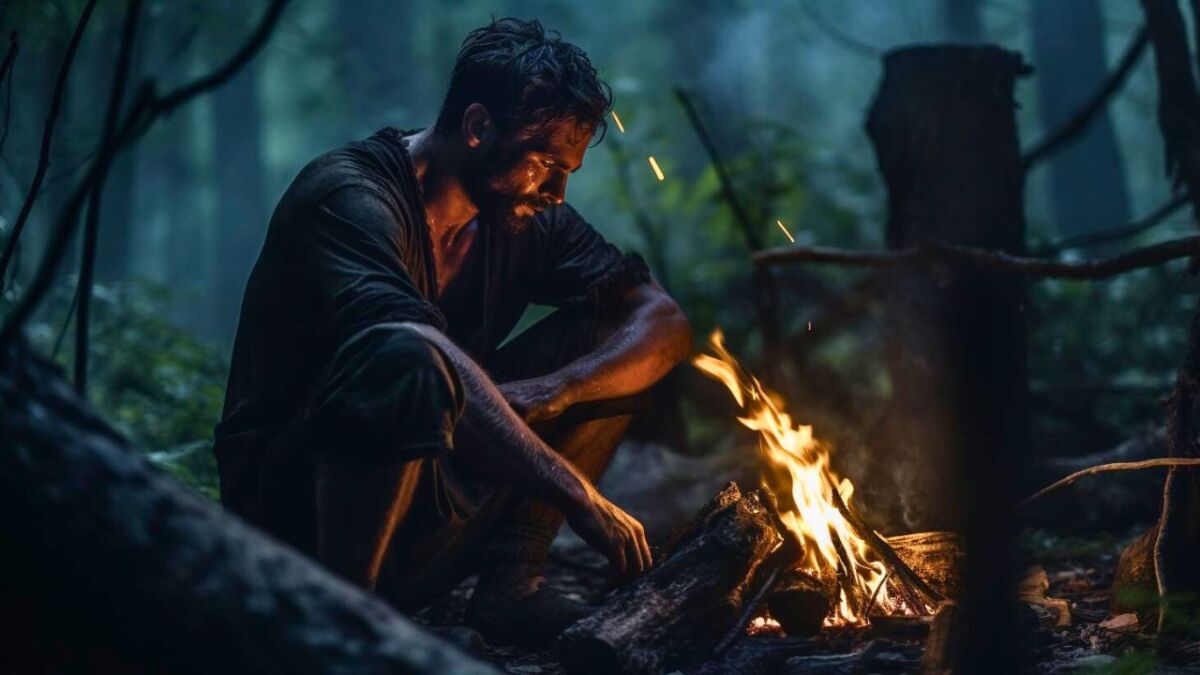
This challenge is for those who want to put their survival skills to the test. You will spend 24 hours alone in the forest and complete various tasks.
I recommend these exercises to you:
-
Solo survival with minimal equipment: You only have a knife and a Firesteel with you. The goal is to fulfill all basic needs with these tools. You build a shelter, make a fire, find water, and search for food. The aim is to strengthen your survival skills and boost self-confidence.
-
Partner survival: You and a partner each have a knife and a Firesteel. You work together to survive. The goal is to enhance teamwork and communication under survival conditions. You plan together and share tasks to effectively survive.
-
Survival with five pieces of equipment: Choose five essential pieces of equipment (e.g., survival knife, Firesteel, rope, water filter, tarp). The goal is to survive 24 hours in the forest with these items. You learn the importance of the right equipment and how to use it effectively.
14. Build a shelter from natural materials and sleep in it
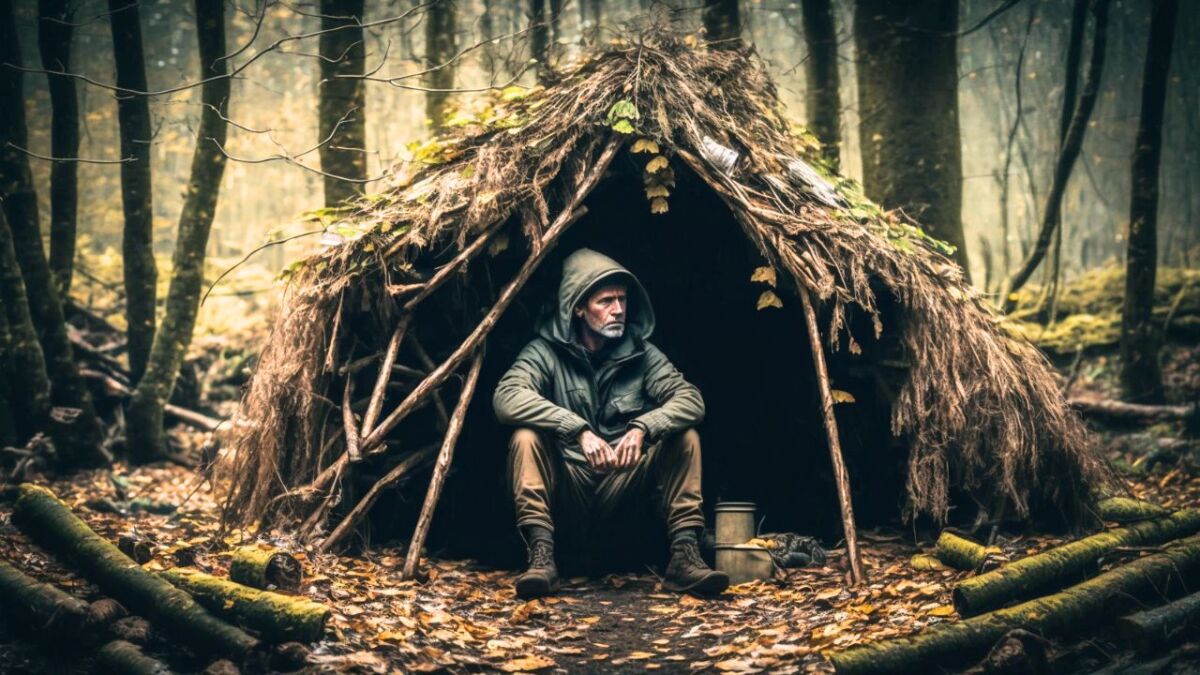
Building a protective shelter out of branches, leaves, and moss is key to a peaceful night in the wilderness.
I recommend these exercises to you:
- Group Building Competition: Each group builds a shelter, which is then evaluated for water resistance. The goal is to promote creativity and craftsmanship.
- Overnight Challenge: Each group sleeps in their built shelter. The goal is to experience the real usefulness and comfort of their construction.
You can find everything about Bushcraft Shelter here.
15. Setting food traps and preparing this food
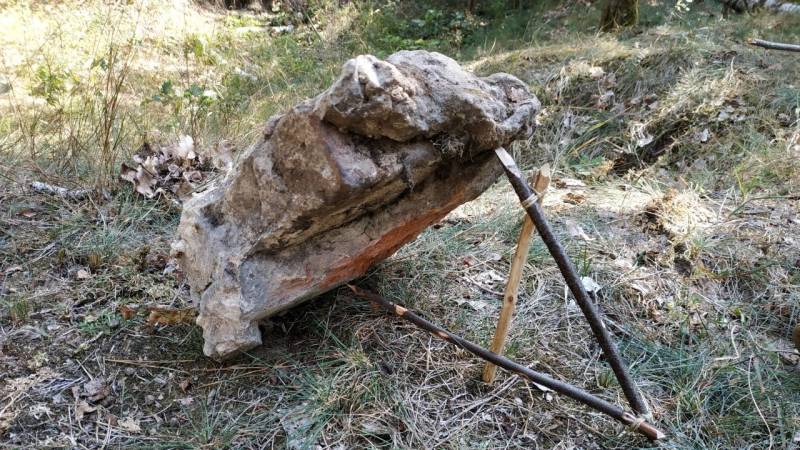
The ability to secure food with self-built traps, and the knowledge of preparation, makes one independent of civilization comfort.
I recommend these exercises to you:
- Trap Building Workshop: Each group member builds their own trap, demonstrates it, and shares experiences. The goal is to learn different techniques and material usage.
- Cooking Challenge: Prepare a meal using the collected food items. The goal is to promote cooking skills under survival conditions.
Learn more about trap building and food preparation here.
16. Long-Distance Orienteering
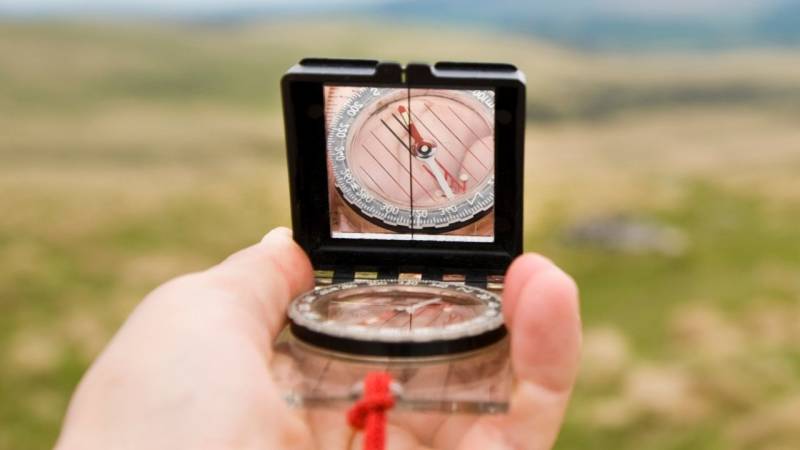
Orientation over long distances without technical aids requires a profound knowledge and skill of natural navigation.
I recommend these exercises to you:
- Orientation Rally: Groups have to find checkpoints without using any technical aids. The goal is to improve orientation skills.
- Map Reading Game: Each group creates a map based on natural features. The goal is to promote map creation and reading skills.
I have written everything about navigation for you here.
17. Surviving in Different Climate Zones

Whether in the scorching heat of the desert or in the damp cold of the high mountains - survival in extreme climates requires specialized techniques and a strong mindset.
I recommend these exercises to you:
- Climate Zone Imitation Game: Each group imitates survival techniques for a specific climate zone. The goal is to understand different environments.
- Climate-Specific Equipment Challenge: Each team assembles the ideal equipment of up to 10 items for a specific climate zone. The goal is to promote equipment knowledge and adaptability.
Here you can find more information about surviving in extreme climates.
18. Finding Water Sources in Arid Regions
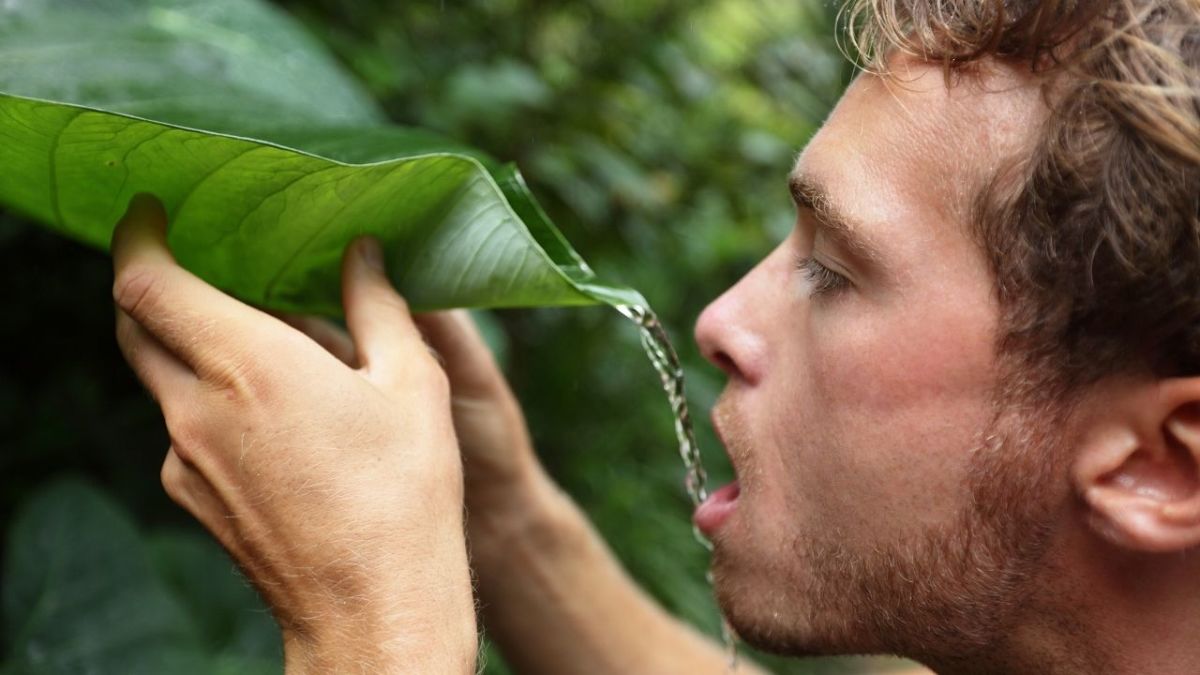
Locating water sources in a dry landscape can mean the difference between life and death and requires detective-like intuition.
I recommend these exercises to you:
- Water Search Game: Groups search for potential water sources in a dry environment. The goal is to develop a sense for finding water.
- Water Purification Workshop: Each group purifies found water by boiling it. The fire was ignited without matches or a lighter. There is no cooking pot or container available. The goal is to learn water purification techniques.
Find everything about water in dry areas here and here I show you how to boil water without a pot.
19. Advanced First Aid Techniques
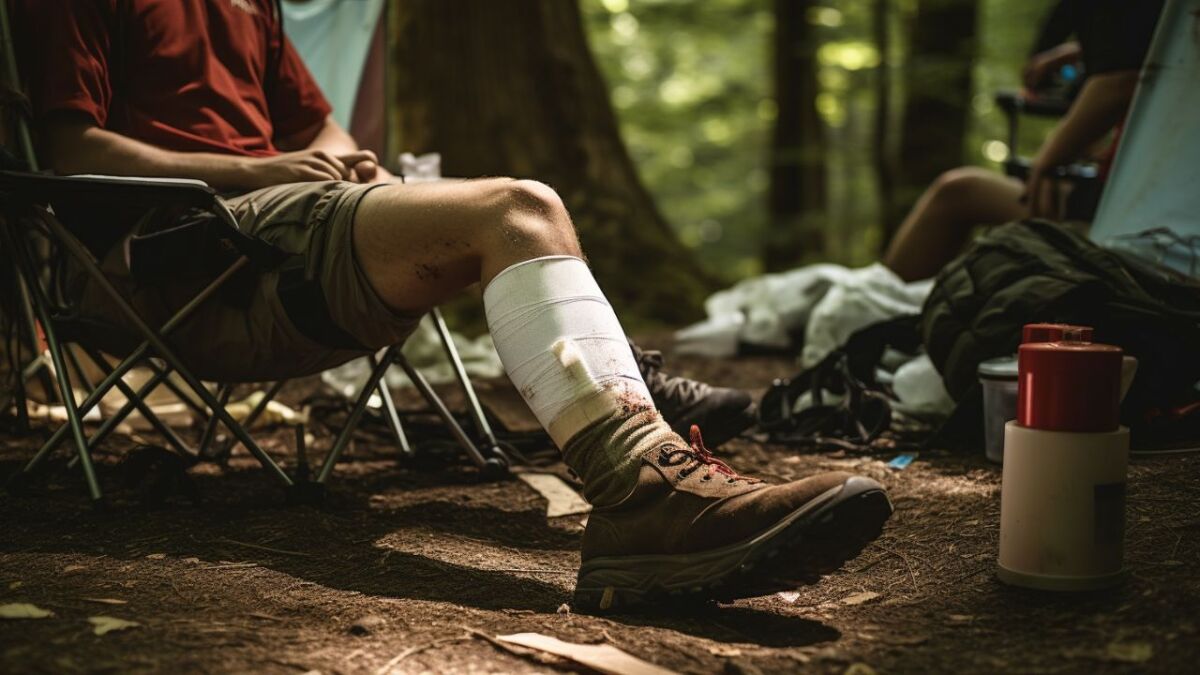
Knowledge of advanced first aid techniques can not only save your life, but also the lives of others in emergencies.
I recommend these exercises to you:
- First Aid Simulation: Groups perform first aid scenarios. The goal is to improve first aid skills.
- Emergency Management Game: Groups manage a fictional emergency. The goal is to promote crisis management.
Here you can find more about advanced first aid techniques.
20. Crossing the River Without a Bridge
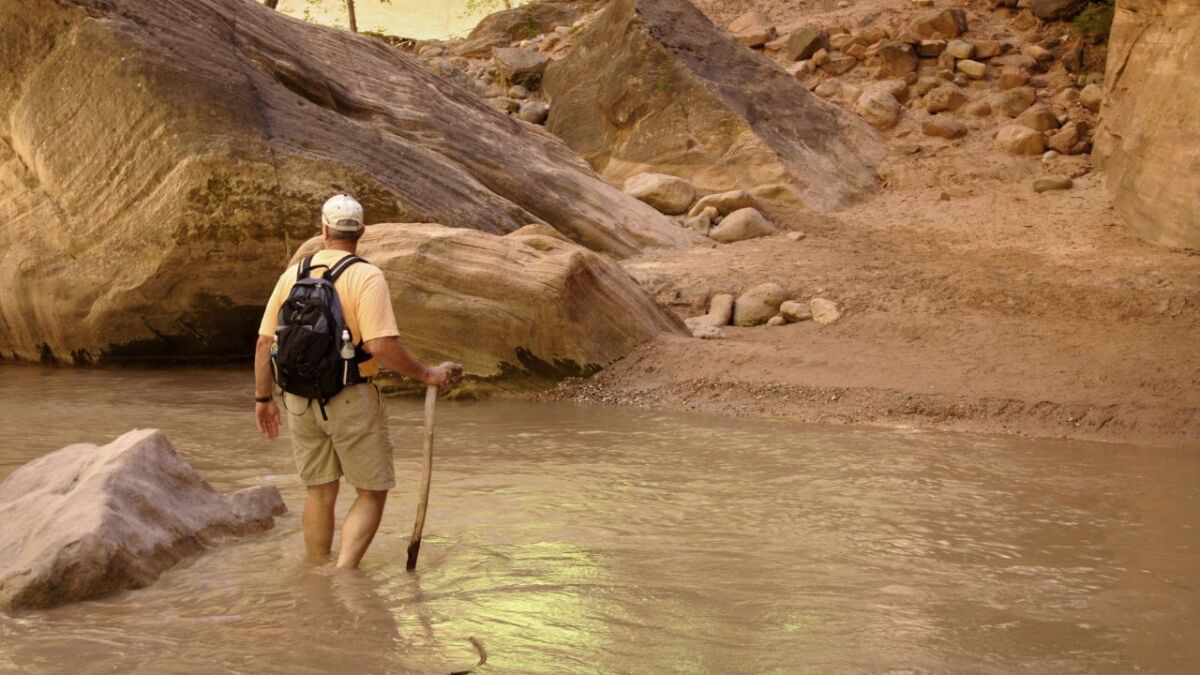
Rivers without bridges to cross present a physical and logistical challenge that requires creativity and courage.
I recommend these exercises to you:
- River Crossing Challenge: Groups cross a river using self-built tools. The goal is to improve teamwork and logistical skills.
- Safety Workshop: Discussion and practice on river crossing techniques. The goal is to understand safety measures.
Find out more about safely crossing rivers here.
21. Natural Navigation Methods

The art of using stars, the sun, and natural landmarks as navigation aids has been forgotten in the modern world.
I recommend these exercises to you:
- Star Navigation Game: Groups navigate at night using the stars. The goal is to learn star navigation.
- Sun Navigation Workshop: Groups use the sun for navigation, such as the shadow stick method. The goal is to understand the position and movement of the sun.
Here I have written down everything for you on the topic of natural navigation methods.
22. Making fire with just one piece of wood
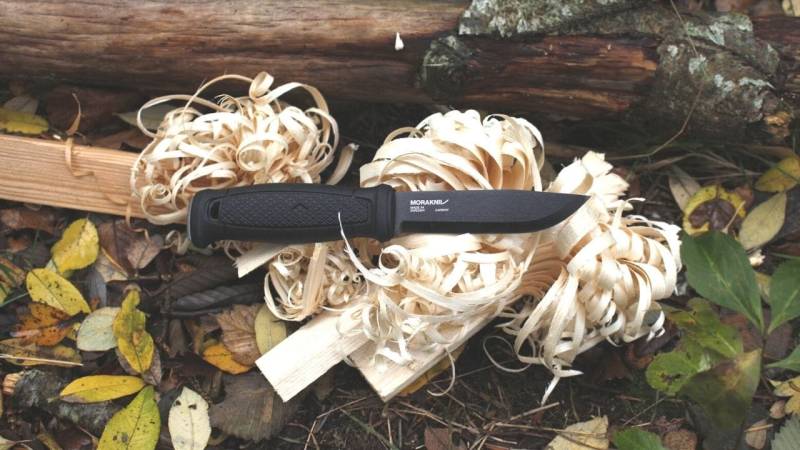
Making fire is one of the fundamental survival skills that can determine life and comfort in the wilderness. This exercise focuses on the way of igniting a fire with limited resources - in this case, just a piece of wood.
I recommend these exercises to you:
- Igniting fire with split wood: Split a piece of wood into different sizes, make Feathersticks, and ignite them with a Firesteel. Goal: This exercise improves your knife skills and teaches you how to efficiently ignite fire with minimal resources.
- Starting a fire after rain: Repeat the steps from exercise 1, but this time under challenging conditions after it has rained. Goal: The challenge here is to ignite a fire despite moisture. This exercise improves your skills in adverse weather conditions.
Crazy and Creative Challenges
In addition to classic Survival Challenge Ideas, there are also creative survival challenges that provide an opportunity to test skills and awaken the joy of discovery.
Instead of the usual serious survival activities, we embark on adventures that approach wilderness survival playfully and with a wink.
23. Outdoor Cooking Competition with Wilderness Ingredients
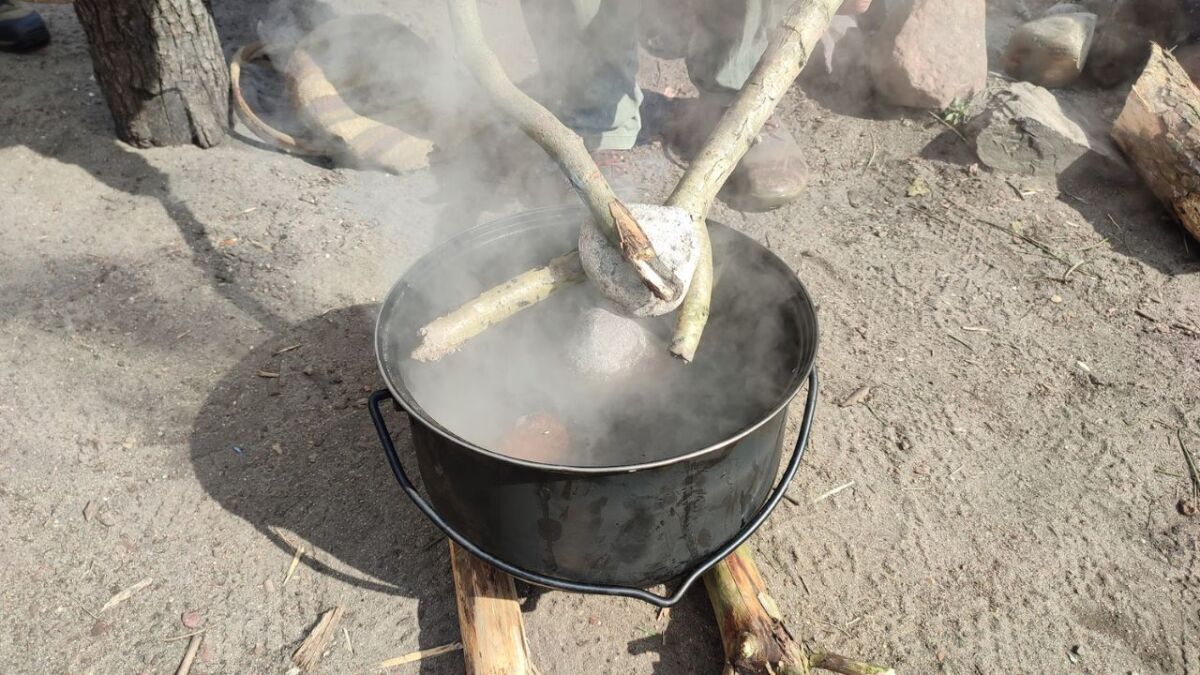
In a cooking competition outdoors in nature, where only ingredients that come directly from the surroundings are used, not only the palate, but also survival in nature becomes a delicacy.
I recommend these exercises to you:
- Wilderness Cooking Duel: Divide into small teams and gather edible plants and other natural ingredients from the surroundings. Each team cooks a dish and a jury evaluates taste and creativity. Goal: Promote teamwork and deepen knowledge about edible wild plants.
- Survival Smoothie Challenge: Each team creates a smoothie using only found ingredients. The most creative and tasty smoothie wins. Goal: Strengthen creativity and knowledge about edible natural products.
If you want to read more, you can find here many outdoor recipes to be well-prepared for the next challenge.
24. Night Hike Without Artificial Light
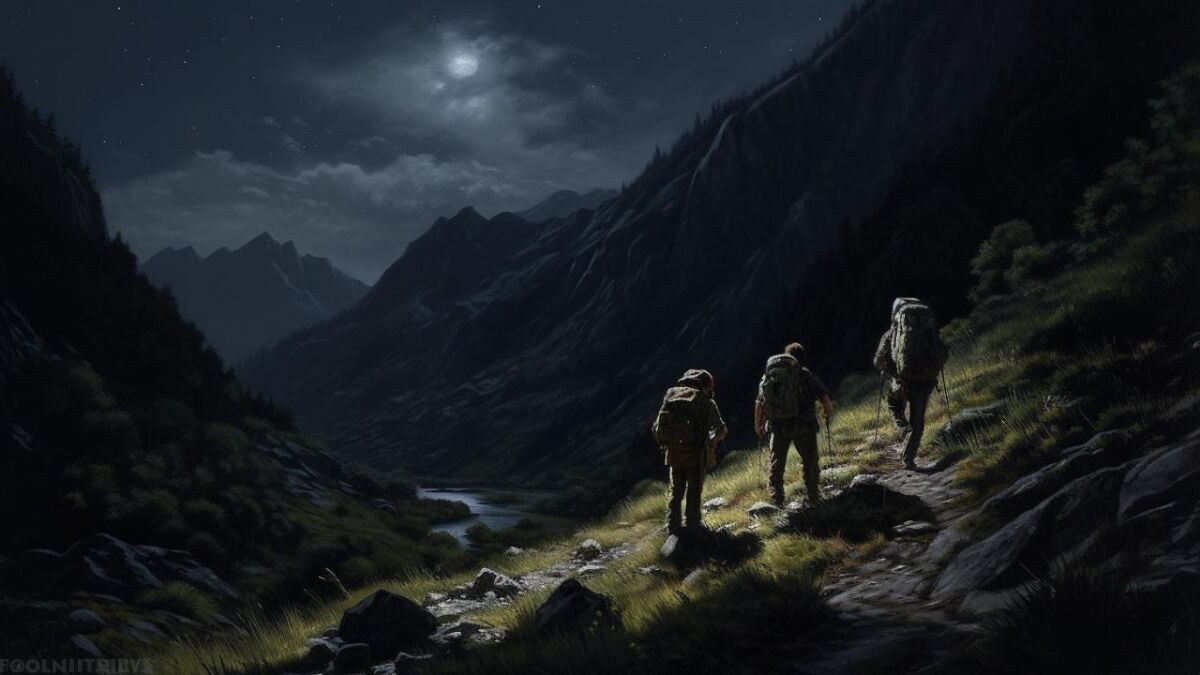
Experience the darkness of the night with all your senses; a challenge that shows us how we can navigate in nature without artificial sources of light. (Also great fun with children)
I recommend these exercises to you:
- Sensory Safari in the Dark: Go hiking in small groups at night and rely only on your natural senses to navigate. Goal: Sharpen sensory perception and strengthen trust in your instincts.
- Stellar Navigation: Learn to navigate by the stars and find your way without artificial light. Goal: Apply astronomical knowledge and improve orientation in the dark.
25. Build and test a homemade raft
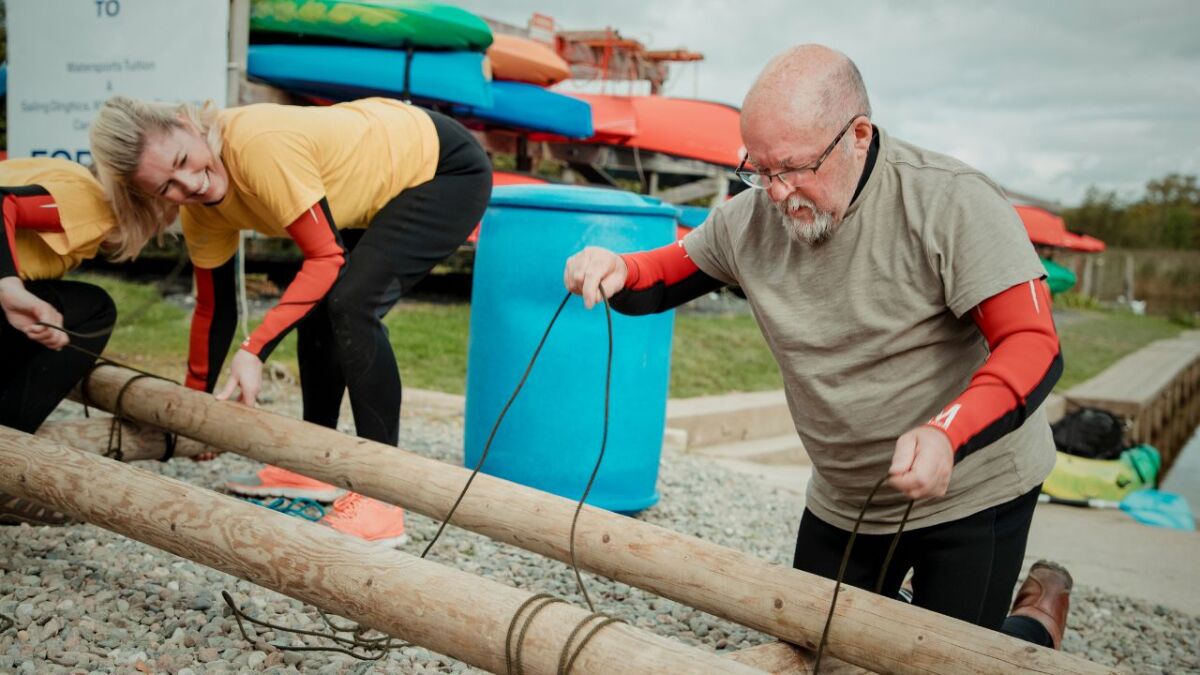
When it comes to raft building, skill, creativity, and teamwork are required. Testing a self-constructed raft on the water combines fun with practical lessons in physics and construction.
I recommend these exercises to you:
- Raft building rally: Build rafts in teams using natural materials and test them on the water. Goal: Promote teamwork and technical understanding.
- Creative raft design challenge: Design and build a unique raft that actually floats. Goal: Strengthen creativity and practical construction skills.
26. Survival Bivouac Building Competition
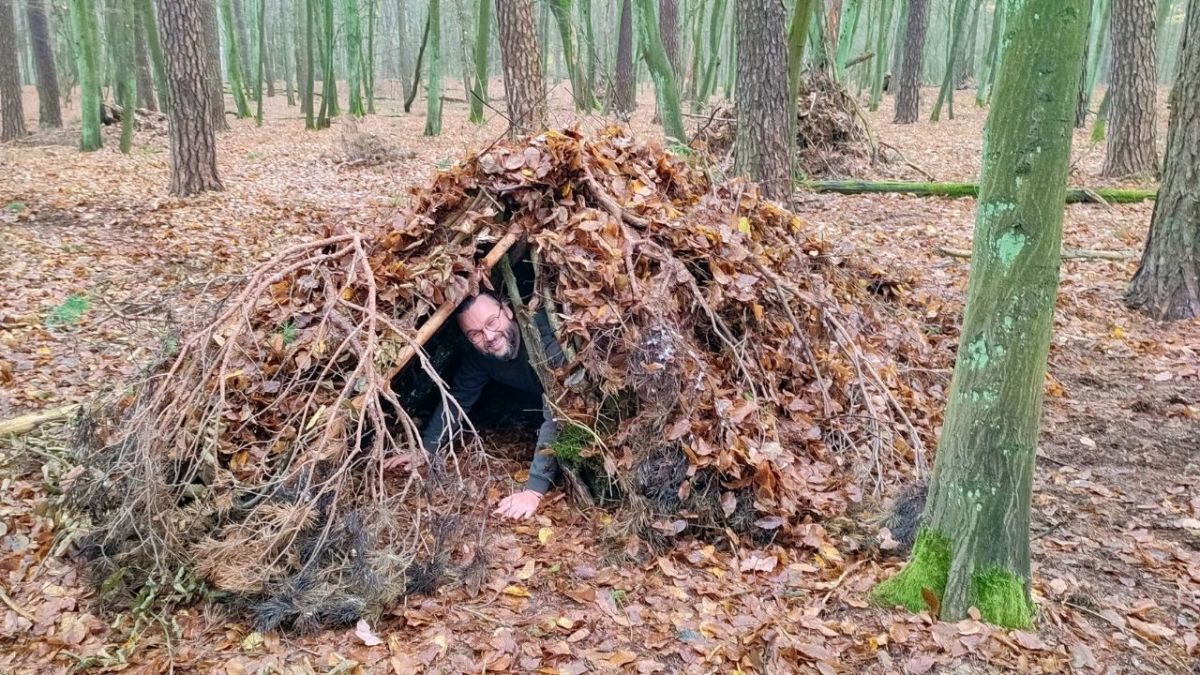
A competition in the construction of bivouacs demands imagination and perseverance. The creative design of emergency shelters is an essential part of the art of survival.
I recommend these exercises to you:
- Biwak Construction Marathon: Each team builds a bivouac within a given time. Goal: Improve speed and efficiency in building emergency shelters.
- Creative Bivouac: Build the most creative and comfortable bivouacs. Goal: Develop innovative thinking and practical skills in shelter construction.
27. Wildlife Tracking and Observation
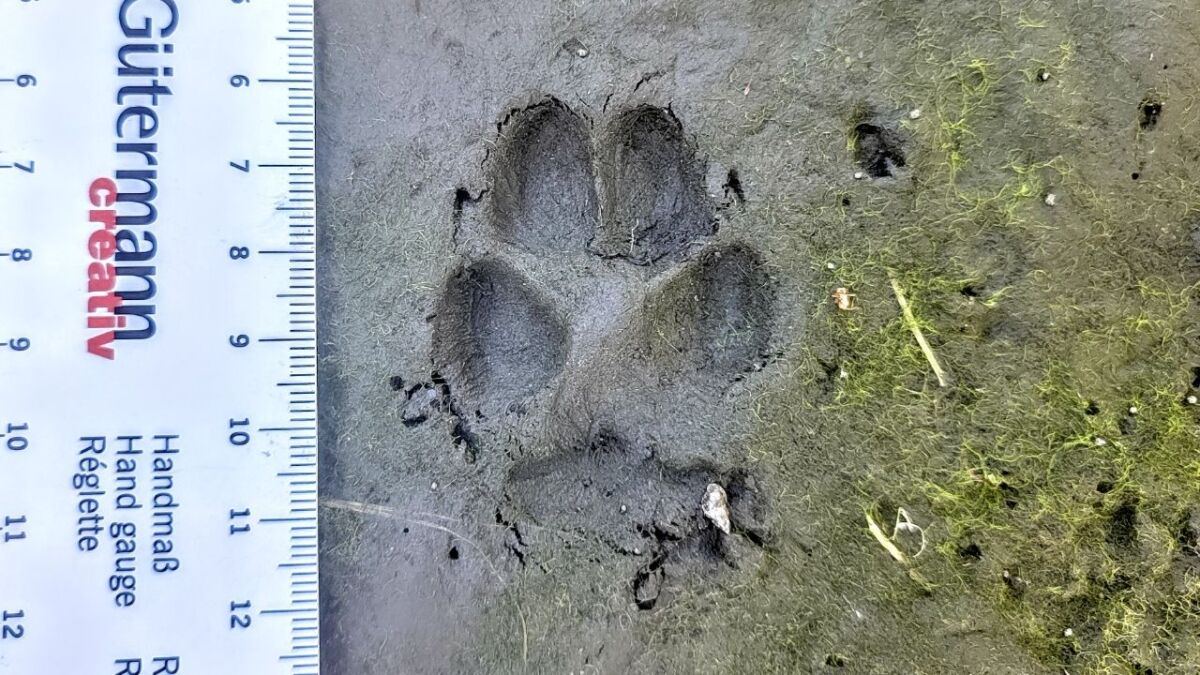
Observing wildlife and interpreting tracks is a fascinating way to deepen our connection to nature and enhance our understanding of its inhabitants.
I recommend these exercises to you:
- Tracking Game: Find and identify wildlife tracks within a given time. Who found the most? Goal: Deepen tracking knowledge and sharpen observation skills.
- Nature Photography Expedition: Take photos of found tracks and animals. Goal: Train patience and attention to detail.
Learn more about animal tracking here (Beginner Guide) and here: "Learn to recognize and interpret animal tracks in the snow". Read the guides so that you can interpret the tracks better next time.
28. Making and Using Natural Dyes
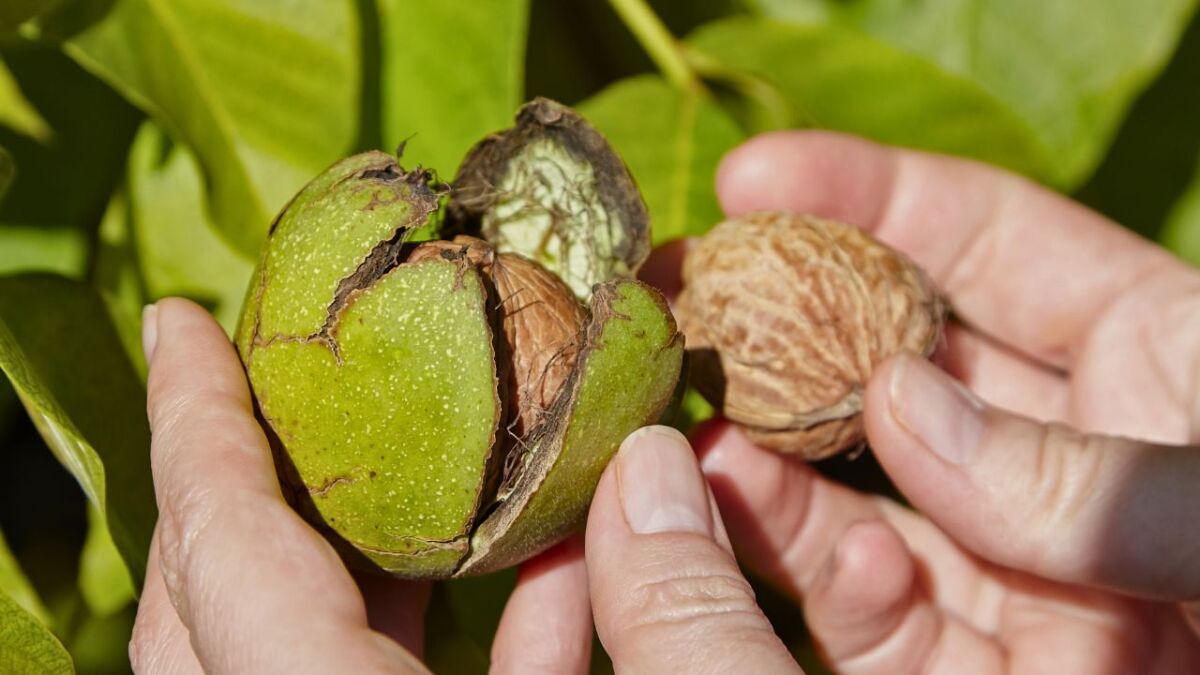
Creating colors with natural materials and then using them creatively opens up a whole new spectrum of survival skills and craftsmanship.
I recommend these exercises to you:
- Dye Explorer: Collects materials and produces natural dyes, such as from walnut shells. Goal: Expand knowledge about natural resources.
- Nature Art Workshop: Uses your homemade dyes for artworks, like dyeing a white t-shirt. Goal: Foster creative expression with natural materials.
29. Survival Photo Contest
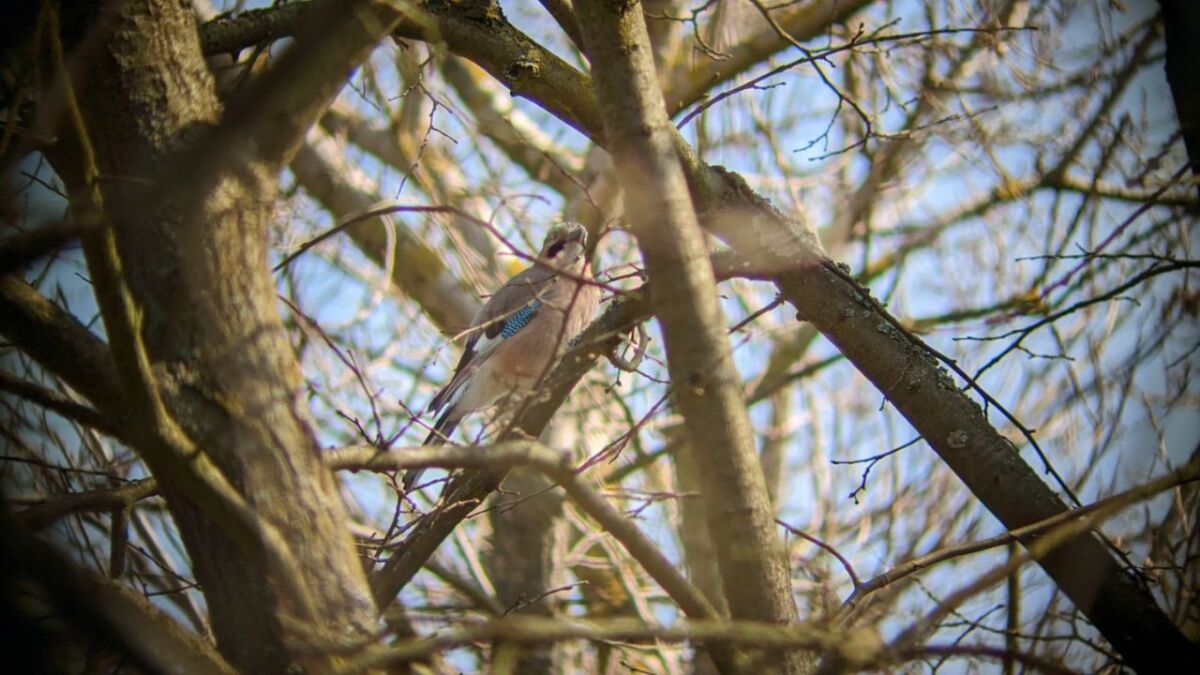
Capturing the beauty and challenge of the wilderness in pictures sharpens the eye for details and requires patience and a keen eye for the perfect composition.
I recommend these exercises to you:
- Wilderness Photo Safari: Take photos of your survival experience and share them with the group. Goal: Capture the beauty of nature and improve photographic skills.
- Themed Photo Contest: Each team chooses a theme and creates a photo series about it. Goal: Foster creativity and teamwork.
30. Making improvised fishing gear

The production of improvised hunting weapons, especially fishing gear, is not only extremely practical for catching fish, but also an excellent exercise in improvisation skills.
I recommend these exercises to you:
- DIY Angel Challenge: Build your own fishing gear and try to catch fish with it. Goal: Promote improvisation skills and patience in fishing.
- Fishing Workshop: Design creative fishing gear, traps, or nets and test them. Goal: Strengthen technical understanding and creativity.
For more tips on survival fishing techniques, check here.
31. Overcoming Natural Climbing Obstacles
Nothing conveys the feeling of freedom and power like climbing natural obstacles - a test of one's courage and skill.
I recommend these exercises to you:
- Nature Climbing Challenge: Find and overcome natural climbing obstacles within a certain time. Goal: Strengthen courage and physical abilities.
- Team Climbing Relay: Climb in teams over various obstacles and try not to be seen or make any noise. Goal: Promote team spirit and mutual support.
A survival community takes you forward
A strong community helps us learn from each other and grow together. I invite everyone to be part of such a community.
It is an opportunity to exchange survival-related experiences and take on new challenges together.
My participation in various survival courses and expeditions has not only strengthened my survival skills, but also highlighted the importance of safety and ethical behavior in this field.
Through integration into a community, I find a source of inspiration and shared learning.
The table below provides an overview of the key aspects of survival training and emphasizes the importance of communication within a community.
| Continuous Learning | Safety | Ethics | Community |
|---|---|---|---|
| Competence Development | Hazard Prevention | Responsibility | Exchange of Experiences |
| Refinement of Techniques | Emergency Plans | Environmental Protection | Expansion of Network |
| Adaptation to New Situations | Equipment Knowledge | Respect for Nature | Shared Adventures |
By continuing to view the adventure of survival as a journey of learning and growth, the relationship with nature and other survivalists remains always inspiring and enriching.
FAQ: Questions and Answers
What are the basic survival skills?
Basic survival skills include making fire without modern tools, finding and filtering water, finding food in nature, building a natural shelter, basic knowledge of first aid, navigation without technical tools, and identifying edible plants.
How can I improve my survival skills in nature?
You can improve your survival skills by participating in a Survival Workshop, playing outdoor survival games, trying out various survival challenges, and continuously educating yourself, for example by joining a survival community or studying books, survival experts, bushcraft experts, and online resources such as the Wildimpuls annual program.
Which challenges are suitable for beginners in the survival field?
Beginners should start with basic skills such as starting a fire, purifying water, finding food, building shelter, first aid measures, basic knot tying, orientation techniques, and sending emergency signals.
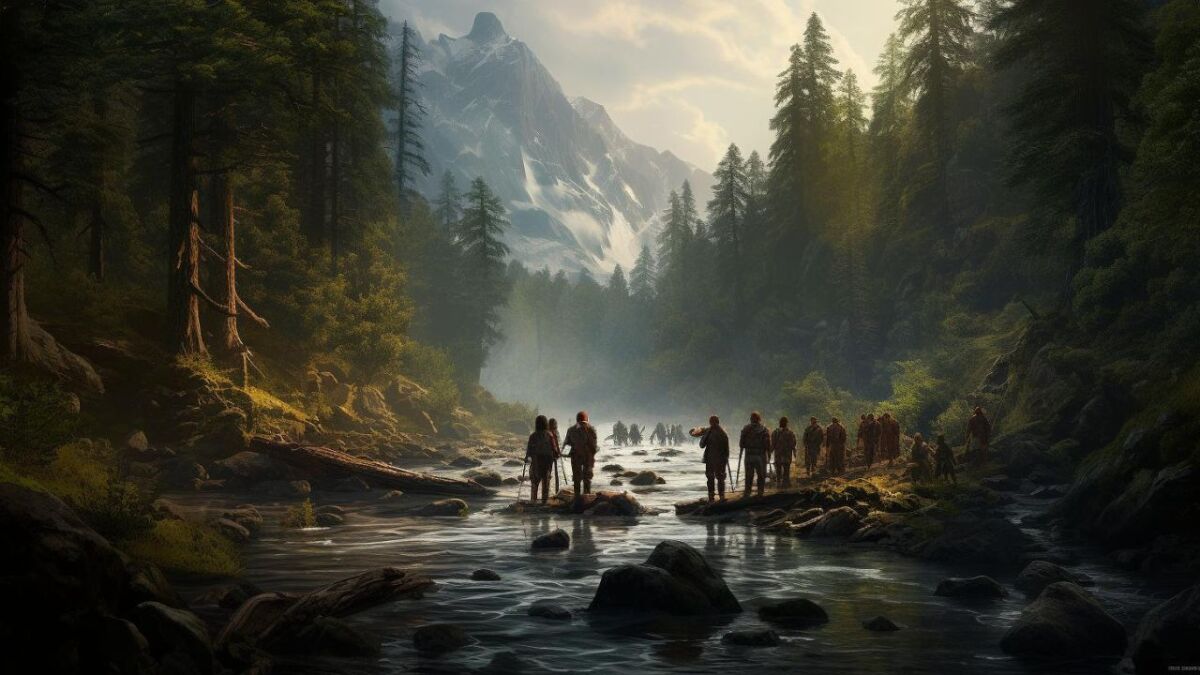
Can I participate in survival challenges without any prior experience?
Yes, there are different challenge levels that are suitable for both beginners without prior experience and advanced learners. It is important to start with the basics (subscribe to my Survival Hacks, there is a free Survival Basics course available) and gradually work your way up to more difficult tasks.
What are some creative survival challenge ideas?
Creative ideas for survival challenges include activities such as an outdoor cooking competition with ingredients from the wilderness, a night hike without light, building and testing your raft, and many other adventurous survival challenges.
Are there survival challenges for advanced outdoor enthusiasts?
Yes, for advanced participants there are challenging survival challenges such as spending a night alone in the forest, multi-day survival tours, lighting a fire in the rain, building sophisticated shelters, long-distance orienteering races, and surviving in different climate zones.
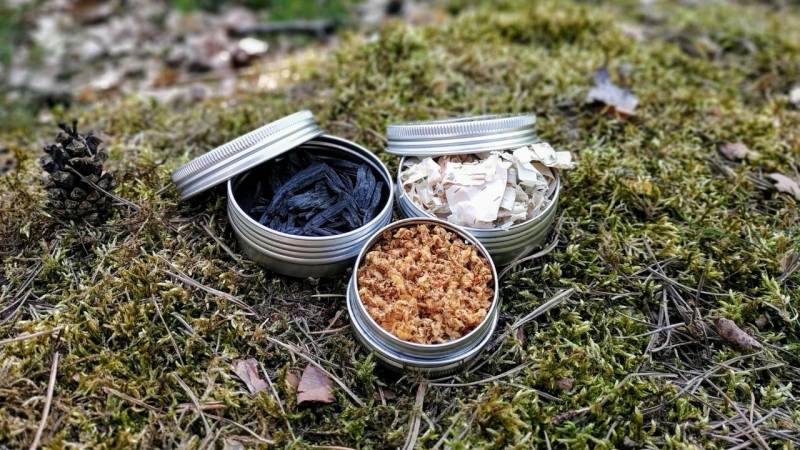
What safety precautions should I consider when participating in survival challenges?
It is important to thoroughly inform yourself in advance about the planned activities, to carry necessary safety equipment, not to venture alone into unknown areas, to consider regional weather conditions, and to keep an eye on your health as well as physical and mental limits.
How do I find a suitable survival community?
You can find a suitable survival community, for example, through the Companion Search here on the website, social networks, forums, specialized websites, or by participating in survival workshops, events, or wilderness online programs where like-minded people come together.
Which resources are recommended for further learning in the field of survival?
For further learning, there are books by survival experts, courses - both online and in-person - as well as specialized websites and blogs. There are also videos, podcasts, and expert interviews that provide valuable insights and additional information.
How do I prepare for a multi-day survival hike?
For a multi-day survival hike, a detailed route planning, packing a customized survival kit, learning advanced survival techniques, checking current weather information, and informing contacts about your planned tour are essential.


Author of the guide
Martin Gebhardt
Hey, I'm Martin. On my blog, you will learn the basics and numerous details about living in the wild. I think survival, bushcraft and the good life in nature are the keys to happiness. Find me here on Instagram or on YouTube. You can find more about my mission on the About Me page.
Was this guide helpful?
18 people found this guide helpful.
5.00 out of 5 points (18 Ratings)
Comments (0)
This post may contain affiliate links. So if you click on the links and make a purchase, I will receive a small commission at no additional cost to you. Click here, to learn more about it.


